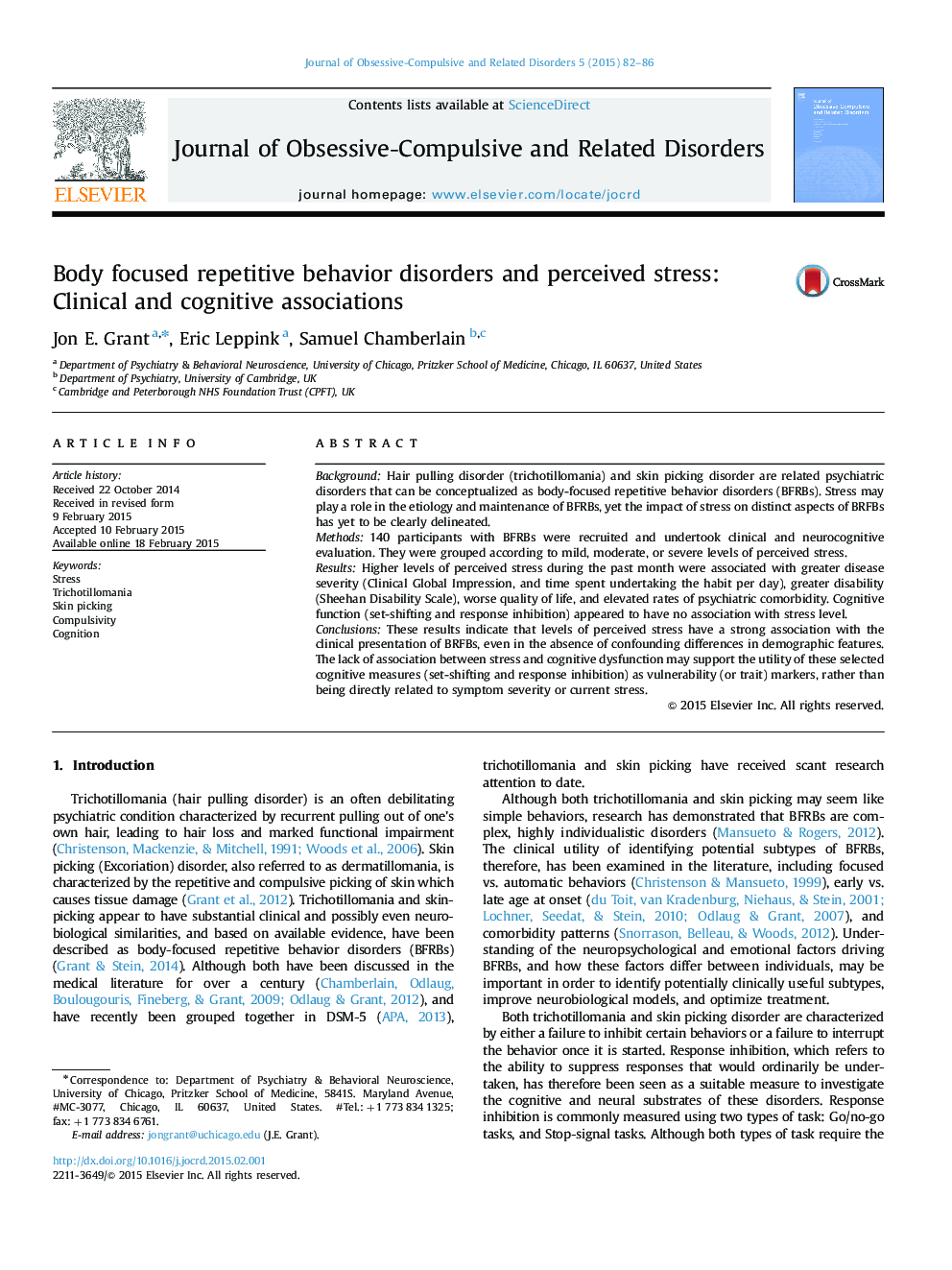| Article ID | Journal | Published Year | Pages | File Type |
|---|---|---|---|---|
| 912289 | Journal of Obsessive-Compulsive and Related Disorders | 2015 | 5 Pages |
•First study assessing perceived stress in body focused repetitive behaviors.•Greater stress associated with worse symptom severity in body focused repetitive behaviors.•Stress appears to have no direct relationship to cognition in BRFBs.
BackgroundHair pulling disorder (trichotillomania) and skin picking disorder are related psychiatric disorders that can be conceptualized as body-focused repetitive behavior disorders (BFRBs). Stress may play a role in the etiology and maintenance of BFRBs, yet the impact of stress on distinct aspects of BRFBs has yet to be clearly delineated.Methods140 participants with BFRBs were recruited and undertook clinical and neurocognitive evaluation. They were grouped according to mild, moderate, or severe levels of perceived stress.ResultsHigher levels of perceived stress during the past month were associated with greater disease severity (Clinical Global Impression, and time spent undertaking the habit per day), greater disability (Sheehan Disability Scale), worse quality of life, and elevated rates of psychiatric comorbidity. Cognitive function (set-shifting and response inhibition) appeared to have no association with stress level.ConclusionsThese results indicate that levels of perceived stress have a strong association with the clinical presentation of BRFBs, even in the absence of confounding differences in demographic features. The lack of association between stress and cognitive dysfunction may support the utility of these selected cognitive measures (set-shifting and response inhibition) as vulnerability (or trait) markers, rather than being directly related to symptom severity or current stress.
